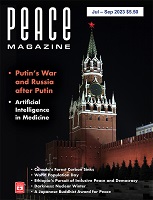PLANET’S AXIS SHIFTS, OCEANS HEAT
Humana activity continues to influence our planet in significant ways.
This includes heating the oceans and even impacting the rotation axis of Earth. Prior to 2000, scientists observed the planet’s axis drifting southwards, away from the geographic North Pole and towards Canada. How- ever, since around 2000, the axis has shifted eastwards. This seems to be a result of the melting polar ice sheets and mountain glaciers, significantly the rapidly melting Greenland ice sheet.
Another contributing factor is the unreplenished water being pumped from the ground, leading to land subsidence that damages infrastructure and reduces underground water storage capacity. The world’s ground water is currently depleting at a rate of about 75 tril- lion gallons per year, notably in India and California’s Central Valley. Though this has not yet significantly shifted Earth’s axis to affect seasons, it is crucial for satellite navigation systems, requiring scientists to predict these changes.
Shocking data have been reported from the ocean this year. The third warmest May was recorded in the 174 years of keeping records. Due to greenhouse gas emissions and the current El Nino, global temperatures are predicted to spike in the coming five years. The average temperature may even exceed 1.5 degrees beyond pre-industrial levels.
The most extraordinary warming is in the oceans, which cover 70 percent of the Earth’s surface. The aver- age sea-surface temperature surpassed 21C for the first time in April, primarily due to unprecedented warming caused by human activities. Record-breaking temperatures are being recorded in the North Sea and the north Atlantic. If these temperatures persist all summer, scientists expect mass mortality of marine life, including kelp, seagrass, fish, and oysters.
Sources: Raymond Zhong, “Something Was Messing with Earth’s Axis. The Answer Has to Do With Us,” New York Times, June 29, 2023; Oliver Milman, “Temperatures Spike Amid Signs of Record-Hottest Year,” The Guardian, June 23, 2023; Helena Horton, “Un- heard of Marine Heatwave,” The Guardian June 19, 2023.
BACK TO ARMS CONTROL
There are currently no ongoing talks to replace the last remaining treaty that limits the substantial U.S. and Russian strategic nuclear arsenals. Despite China’s growing nuclear arsenal and its refusal to partake in bi- lateral talks with the U.S., the Biden administration has proposed a feasible path to- wards arms control. The U.S. is open to engage in nuclear arms talks without preconditions with Russia and other nuclear weapon states be- longing to the Non-Proliferation Treaty.
The New START treaty will expire in 2026, so it’s crucial for Russia and the U.S. to start developing the next generation of arms controls. The Kremlin has ex- pressed openness to explore U.S. proposals, which could include agreeing not to exceed the warhead limit set by New START until a new treaty is adopted. President Biden now sup- ports “new multilateral arms control efforts” involving all five of the NPT members that possess nuclear weapons. Sullivan proposed greater transparency, more effective crisis communications, com- mon rules for missile launch notification, and policies to keep humans in control of nuclear weapons. Such measures, though welcome, can- not overcome the tensions that lead to nuclear war. Only nuclear disarmament can eliminate the threat.
Source: Daryl G. Kimball, “A Plan to Reduce Nuclear Dangers in a Time of Peril,” Arms Control Today, July/August 2023.
THE KAKHOVKA DAM AND FOOD SUPPLY
The recent attack on the Kakhovka Dam has forced 17,000 people to evacuate and might severely impact agricultural production. Most experts agree that Russia probably caused the disaster and the EU has condemned it as a Russian attack.
The Ukrainian agricul- ture ministry anticipates that around 10,000 hectares of farmland on the right bank, the Ukrainian side of the Dnipro River, will be affect- ed, with a larger impact ex- pected on the Russian-con- trolled side. The interruption of the Black Sea grain deal between Kyiv and Moscow may cause further complica- tions once the Black Sea ports are unblocked. Olya Korbut, a fellow at the Center of European Policy Analysis (CEPA), said in a statement that this way, “the attack will affect not only Ukraine, but the rest of the Black Sea countries too”.
“Due to the destruction of the irrigation systems of the agrarian southern Ukraine, the already meagre export capacity of Ukrainian grain will decrease even more,” she added.
Additionally, the broken dam may pose a consider- able challenge to resuming exports. The ministry also predicts that fisheries will suffer significant losses due to falling water levels post the dam break, with an estimated 95,000 tonnes of adult fish at risk of dying.



